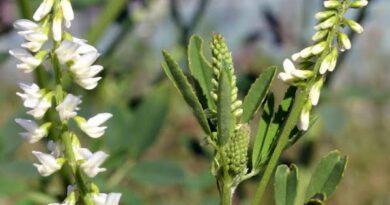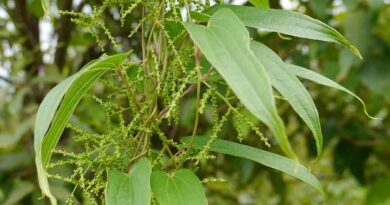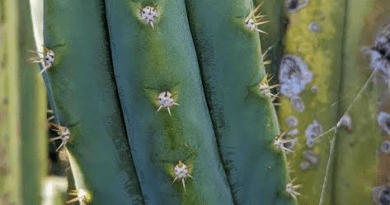10 Medicinal Health Benefits Of Astrocaryum aculeatissimum (Tucum)
Astrocaryum aculeatissimum, commonly known as Tucum, is a palm species native to the Amazon rainforest in South America. This versatile and resilient plant belongs to the Arecaceae family and is recognized for its ecological importance, as well as its various uses in traditional medicine and local economies.
Tucum is characterized by its robust trunk, which can reach heights of up to 15 meters. The palm’s leaves are pinnate, forming a graceful crown at the top. The fruit of Astrocaryum aculeatissimum, also referred to as tucum or tucumã, is a central focus of its significance. These fruits are round and covered in a scaly, brownish husk, housing a nut with edible pulp.
The fruit is a valuable food source for both wildlife and local communities. Rich in oils, tucum nuts are traditionally harvested and processed to extract oil used in cooking and as a base for traditional cosmetics. The oil is known for its nutritional properties, providing essential fatty acids and contributing to the local diet.
Beyond its culinary uses, various parts of the Tucum palm have been employed in traditional medicine. Indigenous communities have utilized different plant components for their potential anti-inflammatory and antioxidant properties. Additionally, the palm’s fibers are sometimes used in crafting traditional items, showcasing the diverse ways in which Tucum is integrated into local cultures.
As with many plant species in the Amazon rainforest, sustainable harvesting practices are crucial to the conservation of Tucum and its ecosystem. Efforts to balance the economic benefits of Tucum with the need for environmental preservation are ongoing, emphasizing the importance of responsible and sustainable resource management in the region.
The Botanical Description of Astrocaryum aculeatissimum
1. Shape and Size: Astrocaryum aculeatissimum, commonly known as “keyword,” is a tall and robust palm tree, reaching heights of 15 to 20 meters.
2. Trunk and Bark: The straight and solitary trunk has a smooth surface with persistent leaf bases. Bark is brownish-gray, developing vertical fissures with maturity.
3. Leaves: Pinnate leaves, several meters in length, form a feather-like arrangement. Long, narrow, sharply pointed leaflets create a visually striking display.
4. Inflorescence: Emerging from the leaves, dense clusters of small, yellowish or greenish flowers contribute to the tree’s aesthetic appeal.
5. Fruits: Spherical to ovoid fruits, known as “keywords,” have a tough outer shell covered in spines, protecting the seeds within.
6. Seeds: Seeds have a hard endosperm and almond-like shape, ensuring resilience and protection for successful dispersal.
7. Root System: Well-developed root system anchors the tree in its native soil, providing stability, especially in challenging environments.
8. Flowers: Small and inconspicuous flowers add subtle charm during the flowering season, attracting pollinators.
9. Growth Habit: Exhibits a solitary growth habit, maximizing exposure to sunlight and nutrients for optimal development.
10. Adaptations: Spiny fruits act as a deterrent to seed predators, ensuring successful dispersal and germination.
The Geographic Distribution of Astrocaryum aculeatissimum

1. Native Range: Native to tropical South America, thriving in the Amazon rainforest with conducive climate and soil conditions.
2. Countries of Presence: Found in Brazil, Peru, Colombia, and Venezuela, spanning the diverse landscapes of the Amazon basin.
3. Habitat Preferences: Thrives in lowland rainforests along riverbanks with well-drained soils, adapting to upland and floodplain environments.
4. Altitudinal Range: Primarily a lowland species but found at altitudes up to approximately 500 meters, contributing to widespread presence.
5. Ecological Role: Integral to the ecological balance of the Amazon rainforest, providing habitat and sustenance for diverse flora and fauna.
6. Climatic Conditions: Thrives in warm, humid conditions typical of tropical rainforests with consistent high temperatures and ample rainfall.
7. Human Interaction: Indigenous communities may interact with the tree for crafts, medicine, and nutritional purposes.
8. Conservation Status: Not currently threatened, but monitoring and conservation efforts are essential due to challenges like deforestation.
The Chemical Composition of Astrocaryum aculeatissimum
1. Phytochemicals: Rich array of phytochemicals, including flavonoids, tannins, and saponins, contributing to medicinal properties.
2. Nutritional Components: Seeds are a source of essential nutrients—proteins, fats, and carbohydrates—valuable for wildlife and human communities.
3. Antioxidant Properties: Exhibits antioxidant properties attributed to phytochemical content, neutralizing free radicals for overall health.
4. Medicinal Potential: Traditional uses include addressing inflammation and pain, showcasing potential in traditional medicine.
5. Anti-Inflammatory Compounds: Compounds, like flavonoids, may alleviate inflammatory conditions, contributing to traditional medicinal use.
6. Antimicrobial Effects: Preliminary studies suggest potential antimicrobial effects against certain pathogens, relevant for medicinal applications.
7. Presence of Fatty Acids: Seeds contain significant fatty acids, including oleic and linoleic acid, supporting overall health in a balanced diet.
8. Traditional Uses: Indigenous communities use various parts for herbal remedies, addressing skin ailments, digestive issues, and respiratory problems.
9. Bioactive Compounds: Bioactive compounds contribute to pharmacological effects, showcasing potential in pharmaceutical research.
10. Sustainable Harvesting Practices: Promoting sustainable harvesting ensures conservation of the species for future generations.
Read Also: 18 Medicinal Health Benefits Of Kaempferia Parviflora (Thai Ginseng)
The Medicinal Health Benefits Of Astrocaryum aculeatissimum (Tucum)

1. Anti-Inflammatory Properties: Astrocaryum aculeatissimum has demonstrated anti-inflammatory effects, making it valuable in alleviating conditions related to inflammation. Compounds found in the plant may help reduce inflammation, providing relief for individuals with inflammatory ailments.
2. Analgesic Effects: The medicinal properties of Astrocaryum aculeatissimum include analgesic effects, offering potential pain relief. Traditional uses of the plant involve addressing various types of pain, making it a natural remedy for discomfort.
3. Antioxidant Benefits: Rich in antioxidants, Astrocaryum aculeatissimum contributes to cellular protection by neutralizing free radicals. Regular consumption may support overall health by reducing oxidative stress and its associated impacts.
4. Respiratory Health Support: Traditional uses highlight the plant’s role in supporting respiratory health. Astrocaryum aculeatissimum may aid in managing respiratory conditions, providing relief for individuals with issues such as asthma or bronchitis.
5. Wound Healing Properties: The plant exhibits properties that contribute to wound healing. Topical applications or formulations containing Astrocaryum aculeatissimum may support the healing process for external injuries.
6. Immune System Modulation: Studies suggest that Astrocaryum aculeatissimum may modulate the immune system. This immune-regulating effect can potentially enhance the body’s defense mechanisms, contributing to overall well-being.
7. Cardiovascular Health Support: Certain compounds in Astrocaryum aculeatissimum may positively influence cardiovascular health. The plant may contribute to improved blood circulation and offer benefits for individuals with hypertension.
8. Anti-Cancer Potential: Ongoing research explores the anti-cancer potential of Astrocaryum aculeatissimum. Studies indicate that certain compounds in the plant may inhibit specific cancer cell growth, presenting avenues for further investigation.
9. Digestive Health Benefits: Traditional uses include addressing digestive issues. Astrocaryum aculeatissimum may have positive effects on the digestive system, potentially aiding in issues such as indigestion or gastrointestinal discomfort.
10. Anti-Microbial Properties: The plant exhibits antimicrobial properties, which may contribute to its traditional use in combating infections. Astrocaryum aculeatissimum may have a role in supporting the body’s defense against microbial threats.
The Methods of Usage to Achieve the Provided Health Benefits Of Astrocaryum aculeatissimum (Tucum)
1. Herbal Infusions: Prepare herbal infusions using Astrocaryum aculeatissimum leaves or extracts. Consuming these infusions regularly may help harness the plant’s anti-inflammatory and antioxidant properties.
2. Topical Applications: For wound healing and skin-related benefits, create topical formulations using Astrocaryum aculeatissimum extracts. Apply these formulations to affected areas to support the healing process.
3. Dietary Incorporation: Include Astrocaryum aculeatissimum seeds or derived products in your diet. The nutritional components and potential medicinal properties of the seeds can contribute to overall health.
4. Respiratory Steam Inhalation: Inhale steam infused with Astrocaryum aculeatissimum extracts to address respiratory issues. This method may provide relief for conditions such as asthma or bronchitis.
5. Traditional Tinctures: Prepare tinctures using Astrocaryum aculeatissimum plant parts. Tinctures can be consumed in controlled doses to benefit from the plant’s medicinal properties.
6. Capsule Supplements: For convenient usage, consider capsule supplements containing Astrocaryum aculeatissimum extracts. This method allows for standardized dosages to support specific health goals.
7. Herbal Poultices: Create herbal poultices using Astrocaryum aculeatissimum for localized applications. This method is particularly useful for addressing external injuries and promoting wound healing.
8. Culinary Integration: Incorporate Astrocaryum aculeatissimum seeds into culinary creations. The seeds can be used in various dishes, offering a flavorful addition to meals while providing nutritional benefits.
9. Immune-Boosting Teas: Prepare teas using Astrocaryum aculeatissimum leaves to support immune system modulation. Regular consumption may contribute to a strengthened defense against infections.
10. Cardiovascular Health Elixirs: Create elixirs or tonics using Astrocaryum aculeatissimum extracts to promote cardiovascular health. This method allows for controlled consumption to potentially benefit blood circulation.
The Side Effects Of Using Astrocaryum aculeatissimum Medicinal Plant
1. Allergic Reactions: Individuals with known allergies to Astrocaryum aculeatissimum should exercise caution. Allergic reactions, though rare, may include skin irritation or respiratory symptoms.
2. Digestive Discomfort: Excessive consumption may lead to digestive discomfort. It is advisable to adhere to recommended dosages to prevent issues such as indigestion.
3. Skin Sensitivity: Topical applications may cause skin sensitivity in some individuals. Performing a patch test before widespread use can help identify potential skin reactions.
4. Respiratory Irritation: Inhaling Astrocaryum aculeatissimum steam or dust may cause respiratory irritation, especially in individuals with pre-existing respiratory conditions. Use with caution in such cases.
5. Blood Pressure Effects: Individuals with blood pressure issues should monitor their levels when using Astrocaryum aculeatissimum. The plant may have cardiovascular effects, and excessive consumption may impact blood pressure.
6. Photosensitivity: Topical applications may increase sensitivity to sunlight, leading to photosensitivity. Users should take precautions, such as applying the plant-based products in the evening or using protective measures when exposed to sunlight.
7. Gastrointestinal Upset: Some individuals may experience gastrointestinal upset, such as nausea or diarrhea, especially with higher-than-recommended dosages. It is essential to follow guidelines for safe usage.
8. Interactions with Medications: Individuals taking prescription medications should consult with a healthcare professional before incorporating Astrocaryum aculeatissimum into their routine. Potential interactions with medications should be considered to avoid adverse effects.
9. Pregnancy and Lactation: Pregnant and lactating individuals should exercise caution and seek medical advice before using Astrocaryum aculeatissimum for medicinal purposes. Limited research is available on its safety during these periods.
10. Avoiding Excessive Consumption: While Astrocaryum aculeatissimum offers various health benefits, moderation is key. Excessive consumption may lead to adverse effects, and users should adhere to recommended dosages to ensure safety.
Read Also: How to Grow, Use and Care for Western Needlegrass (Achnatherum occidentale ssp. Occidentale)
The Scientific Research and Studies of Astrocaryum aculeatissimum

1. Phytochemical Analysis: Scientific research on Astrocaryum aculeatissimum involves comprehensive phytochemical analyses, identifying and quantifying various chemical compounds in different plant parts.
2. Anti-Inflammatory Studies: Exploration of the plant’s anti-inflammatory effects, investigating mechanisms by which its compounds modulate inflammatory pathways.
3. Antioxidant Properties: Studies assessing the antioxidant properties of Astrocaryum aculeatissimum, understanding how its antioxidants contribute to cellular protection.
4. Bioactivity and Medicinal Potential: Research on the bioactivity of specific compounds, exploring potential medicinal applications.
5. Wound Healing Investigations: Studies examining the plant’s impact on different stages of the wound healing process.
6. Antimicrobial Efficacy: Investigations into the plant’s antimicrobial efficacy against various microorganisms.
7. Nutritional Composition: Analyses of the nutritional composition, revealing essential nutrients in different plant parts.
8. Toxicological Assessments: Studies ensuring safety through toxicological assessments, evaluating potential adverse effects and establishing safe dosage guidelines.
9. Cardiovascular Effects: Research exploring how Astrocaryum aculeatissimum may influence factors like blood circulation and blood pressure.
10. Traditional Knowledge Validation: Collaboration with indigenous communities to validate traditional uses and explore the plant’s efficacy through scientific methodologies.
The Safety Precautions and Recommendations In Using Astrocaryum aculeatissimum Medicinal Plant
1. Allergic Reactions: Exercise caution if allergic to Astrocaryum aculeatissimum; perform a patch test before using products derived from the plant.
2. Dosage Guidelines: Adhere to recommended dosage guidelines to prevent adverse effects from excessive consumption.
3. Consultation with Healthcare Professionals: Seek advice before use, especially for individuals with pre-existing health conditions or those taking medications.
4. Pregnancy and Lactation: Consult healthcare providers before use during pregnancy and lactation due to limited research on safety.
5. Avoiding Photosensitivity: Take precautions for topical applications, as they may increase sensitivity to sunlight.
6. Monitoring Blood Pressure: Individuals with blood pressure issues should monitor levels when using Astrocaryum aculeatissimum.
7. Patch Testing for Topical Applications: Before widespread use, perform a patch test for skin sensitivity, especially for individuals with sensitive skin.
8. Adherence to Safety Instructions: Follow safety instructions provided with commercially available products for proper usage and potential side effects.
9. Limited Usage in Children: Exercise caution when considering usage in children, as limited research may be available on safety and efficacy.
10. Reporting Adverse Effects: Promptly report any adverse effects or unexpected reactions to healthcare professionals for ongoing safety assessments.
FAQs About Astrocaryum aculeatissimum Medicinal Plant
Q1: Is it safe for pregnant women?
A1: Pregnant women should consult with healthcare professionals before use due to limited research on safety during pregnancy.
Q2: Can it be used for children’s health?
Exercise caution in children, considering limited research on safety and efficacy for pediatric use.
Q3: What are potential allergic reactions?
Potential reactions may include skin irritation or respiratory symptoms; perform a patch test for known allergies.
Q4: How to incorporate it into the diet?
Seeds or derived products can be included in various dishes, but adherence to recommended dosages is crucial.
Q5: Any known interactions with medications?
Consult healthcare professionals before use with prescription medications to avoid potential interactions.
Q6: Can it be applied topically for skin conditions?
Topical applications may be beneficial; perform a patch test for skin sensitivity.
Q7: Specific safety precautions for topical formulations?
Avoid excessive sun exposure; apply formulations in the evening to reduce sensitivity to sunlight.
Q8: How to ensure the safety of commercially purchased products?
Adhere to safety instructions provided with products, including recommended usage and potential side effects.
Q9: Can it be used for cardiovascular health?
Scientific studies suggest potential cardiovascular benefits, but individuals with cardiovascular issues should monitor blood pressure.
Q10: What to do if adverse effects occur?
Promptly report adverse effects to healthcare professionals for responsible and informed usage.
Read Also: How To Raise Chickens – The Simple Secrets To A Great Backyard Flock









